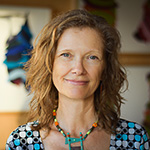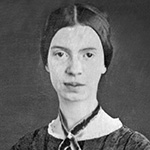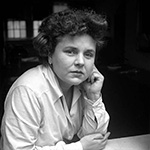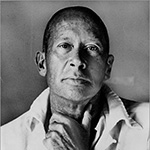I dwell in Possibility
i.
The river gives
an even gown.
dwell Superior — Cedars — To gather Paradise —
ii.
The slow fish knocks
up the room
opening to the sky.
dwell numerous Impregnable Gambrels Occupation —
iii.
I saw myself going — not yet
tiny particle
of charge, of flame.
numerous Visitors — fairest — Occupation —
iv.
If I’d worn a better
number, washed my hands
of the judge’s robe.
Possibility — House numerous Superior — spreading To
gather
One Art
I know you see me
& stay unaroused.
The day takes
a leak & I know you
see me empty of birds, absent
of any more days.
Lose something every
losing
practice losing
meant
travel disaster
my
houses
some rivers
losing
have
losing’s master
disaster
somewhere, beyond
I did not wear thirst
in the end. I imagined
a river. No,
you laugh, look
& see—it is your misfortune.
cannot because
closed myself fingers
mysteriously
imagines
nothing
countries
forever
eyes
such mall
Translator’s Note:
In 2013, Pablo Neruda’s remains were dug up from his seaside grave in Chile. Scientists then asked his bones to tell the story of the day he died. Was it prostate cancer that killed him or had he been poisoned? This story fascinated me—that his bones, that all of our bones, carry hidden messages. This is when I began my own search for alternate voices within the very bones, the letters, of poems.
To create these experimental translations, I start by finding Spanish words living within poems written in English. For instance, a Spanish river (río) runs through the middle of “mysteriously” and the word “losing” contains the Spanish word for without (sin). I then select a constellation of these unintended Spanish words and translate them into English to compose new works. The three poems here arose from Emily Dickinson’s “I dwell in Possibility,” Elizabeth Bishop’s “One Art,” and “somewhere i have never travelled, gladly beyond” by E.E. Cummings.
This process of re-creating poems continues to astound me with the images and sounds and connections that emerge. This sense of discovery and surprise fuels my obsession with locating alternate voices inhabiting well-known poems. At the same time, it feels incredibly important to me to show these two languages, English and Spanish, inhabiting the same page, coexisting within the same sentences, within the same words. I’ve lived in Arizona for the past decade, and this is my own small way of trying to unbuild the wall between us and our neighbors to the south.
There have been many influences along the way to arriving at these experimental translations, and here I’ll offer but two thank yous: to the editors of Found Poetry Review for their 2014 National Poetry Month challenge that introduced me to the text-altering techniques of Oulipo, and to Señor Ruiz, the Cuban exile who landed in a small town in New Jersey and taught Spanish at my high school. As for Neruda’s bones, the first round of scientists found no evidence of poison. Later scientists, however, found an unusual strain of bacteria they can’t account for. All of the stories collected in Neruda’s bones have not yet been told.

Kelly Nelson is a poet and anthropologist who teaches Interdisciplinary Studies at Arizona State University. Her experimental translations have appeared in Structo, Interim, Forklift, Ohio, Best American Experimental Writing and elsewhere. She is the author of two chapbooks and teaches ekphrastic and found poetry classes at her local library. More at kelly-nelson.com.

Emily Dickinson (1830-1886) was an American poet whose first book of poetry was published four years after her death. Some early critics balked at her unconventional writing style but she later came to be recognized as a key proto-modernist poet. Dickinson is one of the 39 women represented by a place setting in Judy Chicago’s art installation The Dinner Party. Many of Dickinson’s handwritten poems and letters can be viewed through this online archive.

Elizabeth Bishop (1911-1979) was an American poet whose first collection, North & South, was published when she was 35. She served as what we now call the U.S. Poet Laureate from 1949 to 1950 and won the Pulitzer Prize for Poetry in 1956, four years after her mentor Marianne Moore won the same prize. Bishop’s life and work were written about recently in the New Yorker.

e.e. cummings (1894-1962) was an American poet whose first book of poetry, Tulips and Chimneys, was published when he was 29. cummings’ poetry experimented with form, punctuation, syntax and spelling and he received many honors including two Guggenheim Fellowships, a Ford Foundation grant and the Bollingen Prize. cummings also published plays and an autobiographical novel based on his experience as a captive during World War I.
